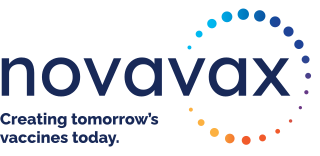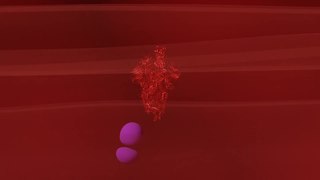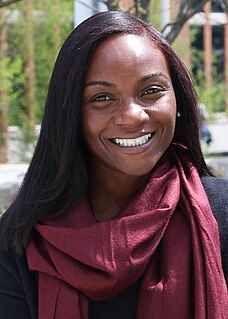
Novavax, Inc. is an American biotechnology company based in Gaithersburg, Maryland that develops vaccines to counter serious infectious diseases. Prior to 2020, company scientists developed experimental vaccines for Ebola, influenza, respiratory syncytial virus (RSV), and other emerging infectious diseases. During 2020, the company redirected its efforts to focus on development and approval of its vaccine for COVID-19. Novavax has indicated it recognizes a continued need for innovative vaccines in other therapeutic areas and reports it has taken steps to ensure continued advancement of its influenza vaccine.

A COVID‑19 vaccine is a vaccine intended to provide acquired immunity against severe acute respiratory syndrome coronavirus 2 (SARS‑CoV‑2), the virus that causes coronavirus disease 2019 (COVID‑19). Prior to the COVID‑19 pandemic, an established body of knowledge existed about the structure and function of coronaviruses causing diseases like severe acute respiratory syndrome (SARS) and Middle East respiratory syndrome (MERS). This knowledge accelerated the development of various vaccine platforms during early 2020. The initial focus of SARS-CoV-2 vaccines was on preventing symptomatic, often severe illness. On 10 January 2020, the SARS-CoV-2 genetic sequence data was shared through GISAID, and by 19 March, the global pharmaceutical industry announced a major commitment to address COVID‑19. The COVID‑19 vaccines are widely credited for their role in reducing the severity and death caused by COVID‑19.

Kizzmekia "Kizzy" Shanta Corbett is an American viral immunologist. She is the Shutzer Assistant Professor at the Harvard Radcliffe Institute and assistant professor of immunology and infectious diseases at Harvard T.H. Chan School of Public Health since June 2021. She joined Harvard following six years at the Vaccine Research Center (VRC) at the National Institute of Allergy and Infectious Diseases, National Institutes of Health based in Bethesda, Maryland. She earned a PhD in microbiology and immunology from the University of North Carolina at Chapel Hill in 2014. Appointed to the VRC in 2014, Corbett was the scientific lead of the VRC's Coronavirus Team, with research efforts aimed at propelling novel coronavirus vaccines, including a COVID-19 vaccine. In February 2021, Corbett was highlighted in the Time's "Time100 Next" list under the category of Innovators, with a profile written by Anthony Fauci.
Jason S. McLellan is a structural biologist, professor in the Department of Molecular Biosciences and Robert A. Welch Chair in Chemistry at The University of Texas at Austin who specializes in understanding the structure and function of viral proteins, including those of coronaviruses. His research focuses on applying structural information to the rational design of vaccines and other therapies for viruses, including SARS-CoV-2, the novel coronavirus that causes COVID-19. McLellan and his team collaborated with researchers at the National Institute of Allergy and Infectious Diseases’ Vaccine Research Center to design a stabilized version of the SARS-CoV-2 spike protein, which biotechnology company Moderna used as the basis for the vaccine mRNA-1273, the first COVID-19 vaccine candidate to enter phase I clinical trials in the U.S. At least three other vaccines use this modified spike protein: those from Pfizer and BioNTech; Johnson & Johnson and Janssen Pharmaceutica; and Novavax.

The Novavax COVID-19 vaccine, sold under the brand names Nuvaxovid and Covovax, among others, is a subunit COVID-19 vaccine developed by Novavax and the Coalition for Epidemic Preparedness Innovations (CEPI), that is undergoing trials in India as Covovax. It requires two doses and is stable at 2 to 8 °C refrigerated temperatures.

The Beta variant, also known as lineage B.1.351, is a variant of SARS-CoV-2, the virus that causes COVID-19. One of several SARS-CoV-2 variants believed to be of particular importance, it was first detected in the Nelson Mandela Bay metropolitan area of the Eastern Cape province of South Africa in October 2020, which was reported by the country's health department on 18 December 2020. Phylogeographic analysis suggests this variant emerged in the Nelson Mandela Bay area in July or August 2020.

CoVLP is a COVID-19 vaccine candidate developed by Medicago and GlaxoSmithKline (GSK). It is a coronavirus virus-like particle vaccine grown in the Australian weed, Nicotiana benthamiana.

EpiVacCorona is a peptide-based vaccine against COVID-19 developed by the VECTOR center of Virology. It consists of three chemically synthesized peptides that are conjugated to a large carrier protein. This protein is a fusion product of a viral nucleocapsid protein and a bacterial MBP protein. The third phase of a clinical trial, which should show whether the vaccine is able to protect people from COVID-19 or not, was launched in November 2020 with more than three thousand participants.

PTX-COVID19-B is a messenger RNA (mRNA)-based COVID-19 vaccine, a vaccine for the prevention of the COVID-19 disease caused by an infection of the SARS-CoV-2 coronavirus, created by Providence Therapeutics—a private Canadian drug company co-founded by Calgary, Alberta-based businessman Brad T. Sorenson and San Francisco-based Eric Marcusson in 2013. A team of eighteen working out of Sunnybrook Research Institute in Toronto, Ontario developed PTX-COVID19-B in less than four weeks, according to the Calgary Herald. Human trials with sixty volunteers began on January 26, 2021 in Toronto.

VBI-2902 is a COVID-19 vaccine candidate developed by Variation Biotechnologies from the United States.

UB-612 is a COVID-19 vaccine candidate developed by United Biomedical, Inc. Asia, Vaxxinity, and DASA. It is a peptide vaccine.

NDV-HXP-S is a COVID-19 vaccine candidate developed under the leadership of Peter Palese, Adolfo García-Sastre, and Florian Krammer at the Icahn School of Medicine at Mount Sinai.

Razi Cov Pars is a COVID-19 vaccine developed by the Iranian Razi Vaccine and Serum Research Institute.
Michael Yeadon is a British anti-vaccine activist and retired pharmacologist who attracted media attention for making false or unfounded claims about the COVID-19 pandemic and the safety of COVID-19 vaccines. The Times has described him as "a hero of Covid conspiracy theorists" and "a key figure in the antivax movement". He previously served as the chief scientist and vice-president of the allergy and respiratory research division of the drug company Pfizer, and is the co-founder and former CEO of the biotechnology company Ziarco.

COVAX-19 is a recombinant protein-based COVID-19 vaccine developed by South Australian based biotech company Vaxine. It is under clinical trial in collaboration with the Iranian company CinnaGen.
Robert Wallace Malone is an American virologist and immunologist. His work has focused on mRNA technology, pharmaceuticals, and drug repurposing research. During the COVID-19 pandemic, he has been criticized for promoting misinformation about the safety and effectiveness of COVID-19 vaccines.

Spike (S) glycoprotein is the largest of the four major structural proteins found in coronaviruses. The spike protein assembles into trimers that form large structures, called spikes or peplomers, that project from the surface of the virion. The distinctive appearance of these spikes when visualized using negative stain transmission electron microscopy, "recalling the solar corona", gives the virus family its name.

COVID-19 vaccine clinical research uses clinical research to establish the characteristics of COVID-19 vaccines. These characteristics include efficacy, effectiveness and safety. Twenty-nine vaccines are authorized for use by national governments, including eight approved for emergency or full use by at least one WHO-recognised stringent regulatory authority; while five are in Phase IV. 204 vaccines are undergoing clinical trials that have yet to be authorized. Nine clinical trials consider heterologous vaccination courses.

202-CoV is a COVID-19 vaccine candidate developed by Shanghai Zerun Biotechnology Co., Ltd., Walvax Biotech.

William Paul Duprex is an American-based scientist and advocate for vaccines and global health. He serves as Director of the University of Pittsburgh's Center for Vaccine Research and Regional Biocontainment Laboratory. Duprex holds the Jonas Salk Chair in Vaccine Research. He's also a professor of microbiology and molecular genetics at the University of Pittsburgh School of Medicine and serves as Editor-in-Chief of the Journal of General Virology. Duprex is an expert in measles and mumps viruses and studies viral spillover from animals to humans, including the SARS-CoV-2 virus that caused the COVID-19 pandemic. Duprex is a Fellow of the American Academy of Microbiology.







